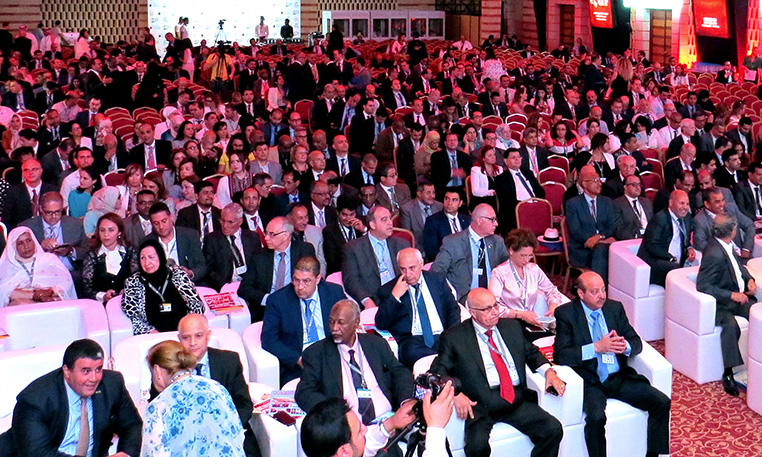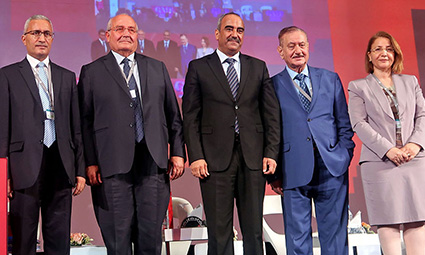Insurers must keep pace with technological changes

The recent unfavourable events that occurred in some Arab countries have proven that crises and challenges can only be overcome through national will, joint effort and the cooperation of all players in order to achieve Arab integration, said Mr Abdul Khaliq Raouf Khalil, secretary general of GAIF, opening the 32nd General Conference in Hammamet, Tunisia, yesterday. After these stressful times, he expects the markets to rebound, paving the way for a phase of innovation.
Mr Khalil said technology is changing how the world works and digital revolution is the challenge of the day. Nevertheless, every challenge is an opportunity for growth. But it will require insurers to organise and enhance market practices, introduce innovative products and adopt unconventional methods. Technological advancement is accelerating the pace of change, he said.
Overall, Arab insurers and reinsurers have been able to protect their businesses by revising and modernising their business strategies, benefiting from international and regional experiences, Mr Khalil said. “This has helped preserve a positive growth trend in terms of the quality and size of businesses that has kept Arab insurance markets attractive.”

Change or die
Mr Lassaad Zarrouk, president of FTUSA and the organising committee of the 32nd General Conference, said the theme of this year’s conference reflects the challenges Arab markets are facing.
Digital transformation, or the Fourth Industrial Revolution, is an intellectual and cultural leap. Therefore, insurers need to change their conventional modus operandi when dealing with clients, he said, urging insurers to take advantage of emerging technologies such as AI, said Mr Zarrouk.
Transformation brings about benefits, but it will require insurers to change their strategies and such changes should be implemented before it is too late. At the same time, he commended GAIF’s strength and affirmed its ability to support the industry to overcome the challenges it faces.
Outgoing GAIF president Max Zaccar said that with its 350 members, GAIF is the largest insurance federation in the world. He said GAIF is going through serious reforms and its Board has decided to gradually adopt a stronger corporate governance strategy for its managerial departments. “To implement this, we have started the process of establishing an internal audit committee which will enable us to analyse the financial capability of the Federation and the need to bring in new manpower to lead GAIF into the future.” Mr Zaccar said the 32nd term of GAIF’s presidency, headed by Tunisia, will see the forging of a future strategy after deliberation with members.
Insurance industry lagging behind
Mr Mohamed Ridha Chalghoum, Tunisia’s minister of finance said the insurance industry should learn from the experiences of other industries like banking and telecommunications as they have adapted to technological changes. These industries have used technology to reach out to greater masses, expand businesses and respond to their clients swiftly, he added, pointing out that Arab insurers lag behind when it comes to exploiting technology.
Mr Chalghoum challenged insurers to adopt new strategies, create new channels of distribution and find innovative means to settle claims and serve clients to keep pace with the technological transformation.
With its theme of “Digital Transformation and the Insurance Industry in the Arab World”, this year’s GAIF conference in Tunisia attracted over 1,400 participants from 51 countries.